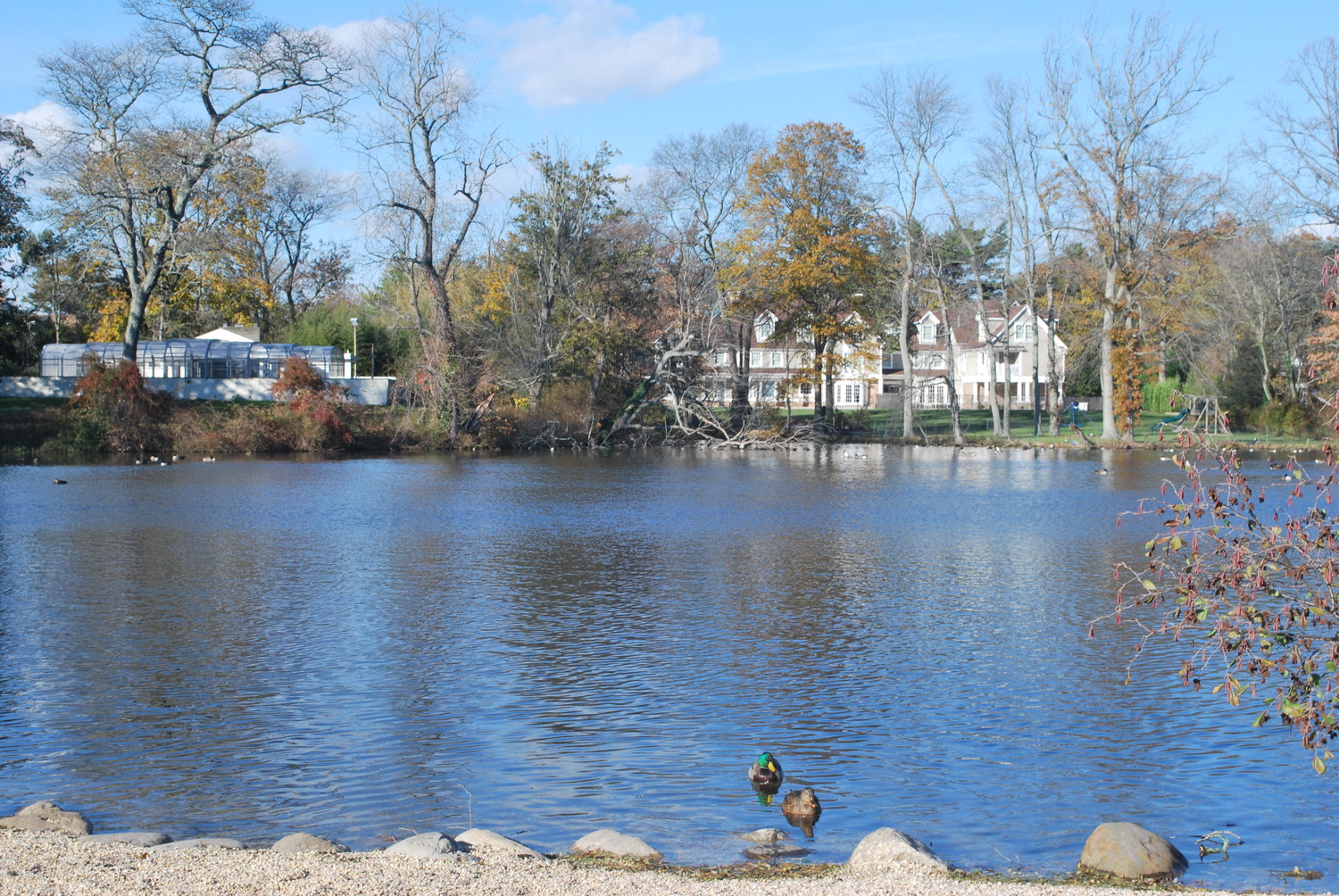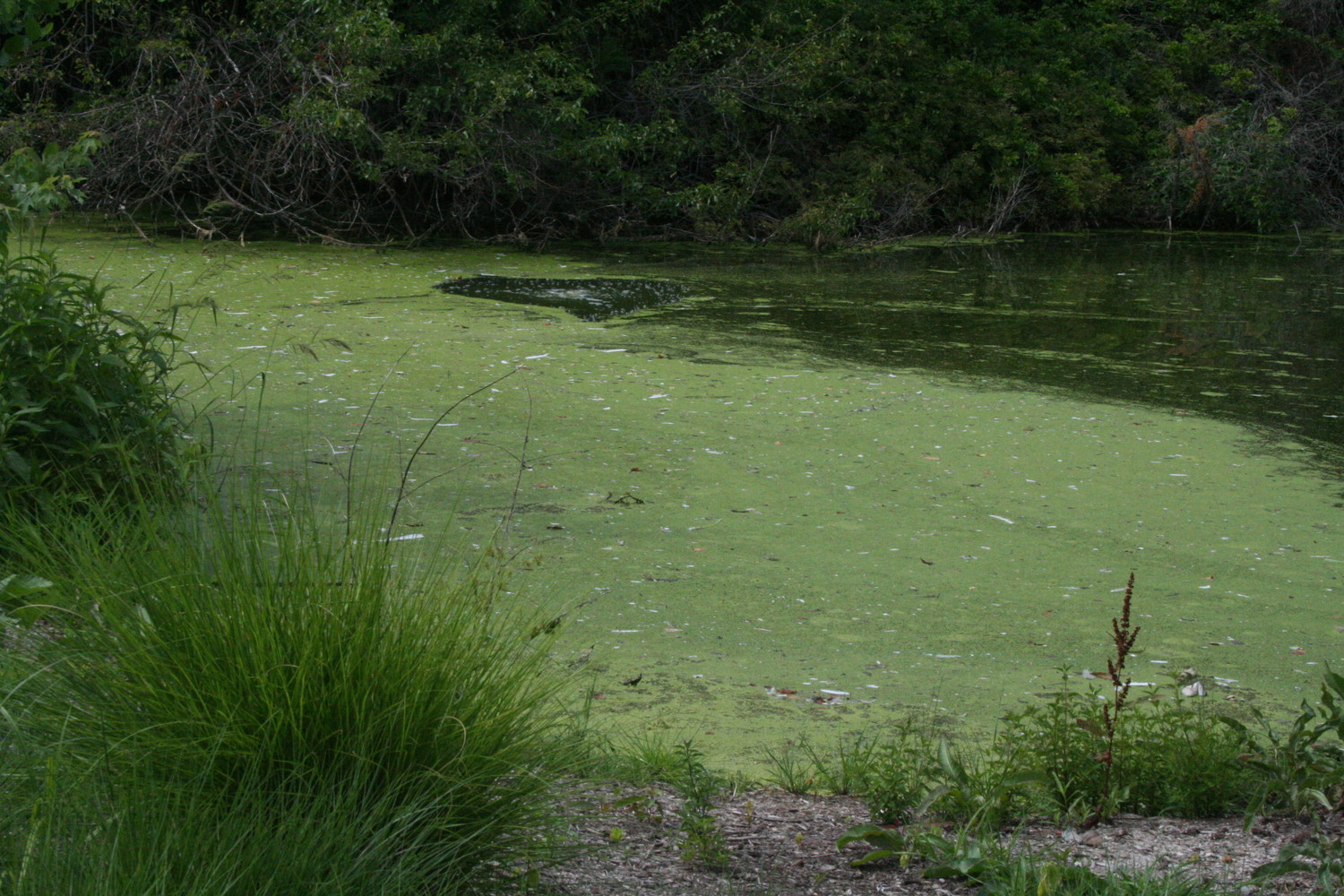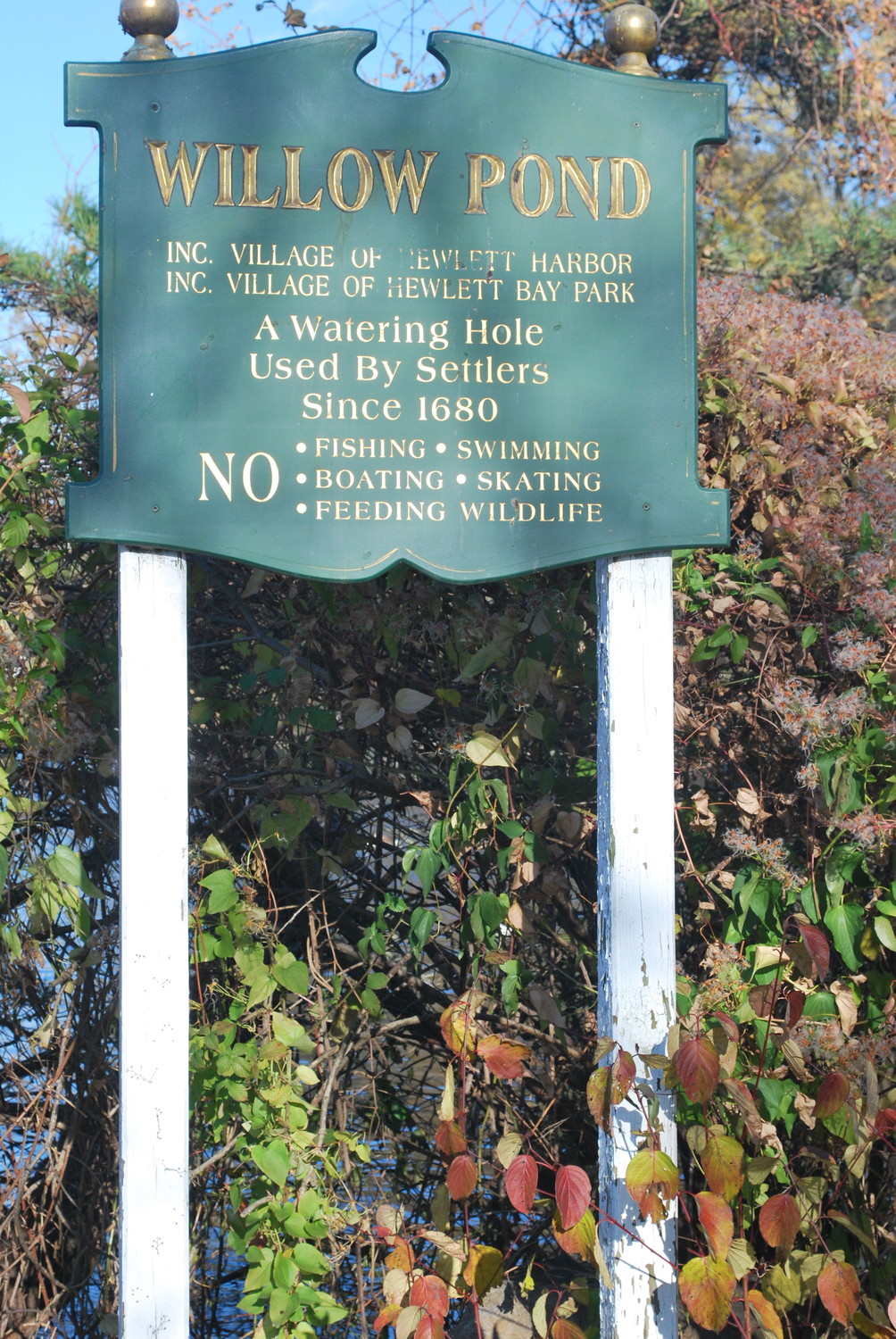Aiming to keep Willow Pond sparkling
Duckweed and algae cause an eyesore
After a $452,000 restoration five years ago, Willow Pond, a 4.5-acre pond on Everit Avenue in Hewlett Harbor, is once again being ravaged by duckweed, a flowering aquatic plant that floats on the surface, and algae, which kills aquatic life, and both have turned an object of community pride into an eyesore.
Six residents brought their concerns to village trustees on Nov. 9. “We have a situation where this plant is growing rapidly, and there needs to be a way to take care of it,” said Nina Alsofrom, who lives by the pond. She said she didn’t think the recent removal of the duckweed, part of an ongoing effort, is a permanent solution. “I’m certainly not an expert in this area,” Alsofrom added, “but I’d like to talk about other ways we can get this back to the pristine condition it used to be years ago.”
Eight years ago, residents sayid the pond was in deplorable condition. According to Hewlett Harbor Mayor Mark Weiss, roughly 95 percent of the duckweed dies each winter, but the remaining portion rapidly blooms in the spring. The village is looking to attack the problem early next year.
Responding to the residents’ concerns, Weiss reviewed several methods that have been used to try to eradicate the weeds over the past few years. “I think we’ve been working on this pond for about six years now,” he said.
The village’s most recent efforts have fallen short because of circumstances beyond its control. The state Department of Environmental Conservation prohibits the use of diquat, an herbicide that dehydrates and defoliates the area where it is used. Weiss said that the village has worked with State Sen. Todd Kaminsky, a Democrat from Long Beach, to persuade the DEC to allow it to use diquat at least once. Village officials noted, however, that they are concerned one application might inadequate.
The trustees sought to rent a large machine from a Florida company this summer that would scoop up the duckweed, before it overwhelmed the pond. But the company was not allowed to transport the equipment out of the state because of an administrative issue.
Dredging the pond has also been considered, but environmentalists have said they don’t know whether that would alleviate the duckweed on the surface. “It might help with a number of things, but it’s not clear what effect it would have on the duckweed,” Weiss said.
Alsofrom’s young adult son, Alec, who researched the problem, said he believes the plant needs to be eliminated all at once, and wants to address the root causes of the algae and duckweed. “The groundwater and storm water runoff is going directly into the pond through the sewer systems,” he said. “The water contains phosphorus that causes the algae to grow and reduces oxygen in the water, killing the wildlife as well. We’re taking steps, but are we taking the right steps?”
Village officials said the county has jurisdiction over the drainage systems. The trustees noted that they urge residents not to use fertilizer, which washes into the storm drains.
Weiss stressed that the board is taking the issue seriously, and encourages residents to get involved in cleanup efforts. Collaboration among municipalities could also help solve the problem, trustees said, as was the case in 2012, when two Nassau County Environmental Bond Act grants — one for $202,000 and another for $150,000 — and a $100,000 contribution from the Town of Hempstead funded a rehabilitation of the pond.
The village website, Alec Alsofrom pointed out, “reads residents of Hewlett Harbor are extremely proud of Willow Pond. As a collective group, I can say we’re not proud of it. I think we should continue to take action to maybe become proud of it again.”
Have an opinion about cleaning up Willow Pond? Send your letter to the editor to jbessen@liherald.com.

 68.0°,
Mostly Cloudy
68.0°,
Mostly Cloudy 









